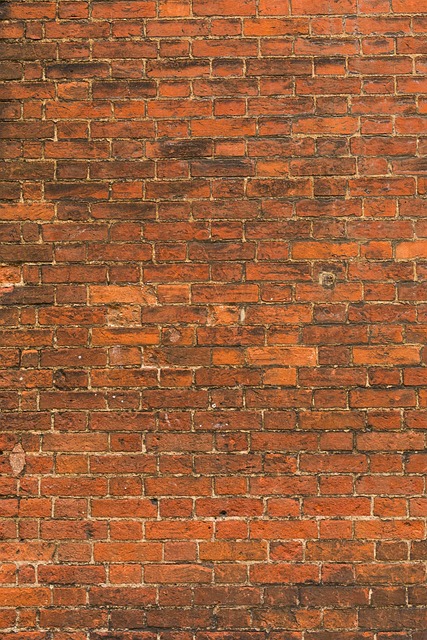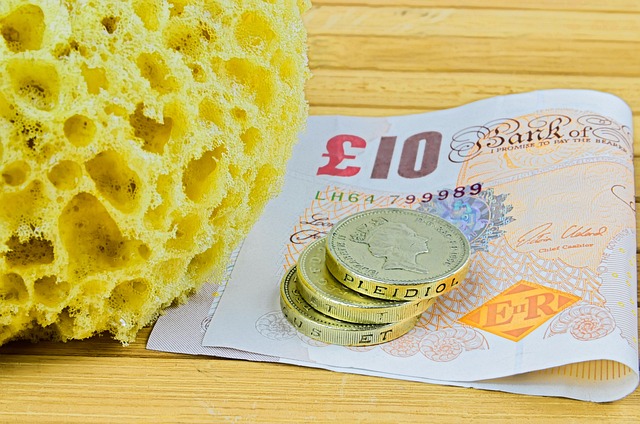Grout cleaning is crucial for maintaining the aesthetics and hygiene of homes, especially in high-moisture areas. Regular DIY efforts often fail to remove deep-seated grime due to grout's porous nature. Professional cleaners use eco-friendly solutions, specialized tools, and advanced techniques to restore grout effectively. Regular visual inspections are key to preventing long-term damage. The process involves detailed inspection, degreasing, power washing, chemical solutions, and rinsing. Choosing the right cleaner based on grout type, project size, and desired cleanliness is vital. Professional cleaning is recommended for heavily stained or damaged grout, with regular maintenance every 1-2 years suggested.
Grout, often overlooked, is the unsung hero of your home’s interior, keeping floors and walls looking crisp and new. However, over time, it can become discolored, stained, and neglected. Professional grout cleaning isn’t just about aesthetics; it’s essential for hygiene and maintaining your space’s value. This comprehensive guide explores everything from understanding grout’s role to choosing the right cleaner, covering common issues, expert techniques, benefits of regular maintenance, and frequently asked questions to ensure your grout shines like new.
Understanding Grout: The Unseen Hero of Your Home

Grout, often overlooked, is the unsung hero of your home’s aesthetics and functionality, especially in areas like bathrooms and kitchens where it forms the foundation between tiles. This seemingly simple material plays a crucial role in maintaining a clean, organized, and visually appealing space. However, despite its importance, grout can quickly become a haven for dirt, stains, and mold, requiring regular grout cleaning to restore its original glow.
Understanding the composition of grout is key to effective grout cleaning. Unlike tiles, grout is porous and absorbs liquids easily, making it prone to staining and the buildup of bacteria. Regular cleaning practices may not suffice for deep-seated grime, which is when professional grout cleaners step in with their specialized tools and techniques. They employ eco-friendly solutions and precision equipment to thoroughly clean and restore grout, ensuring your home remains a sanctuary of cleanliness and style.
Why Professional Grout Cleaning is a Must

Professional grout cleaning is a must for several reasons, especially in maintaining the aesthetics and longevity of your spaces. Over time, grout—the material that fills the gaps between tiles—tends to accumulate dirt, mold, and mildew, giving rise to unsightly stains and an unwelcoming environment. Regular DIY efforts often fall short, as they cannot penetrate deep enough to remove stubborn buildup. Professionals, however, employ specialized equipment and eco-friendly cleaning solutions tailored for grout, ensuring a thorough yet safe clean.
Moreover, professional grout cleaners understand the nuances of different tile types and grouts, using this knowledge to avoid damaging your valuable flooring or tiling during the cleaning process. By leaving this task in the hands of experts, you can expect a restored grout line that looks as good as new, enhancing the overall look of your tiled surfaces and ensuring they remain in pristine condition for years to come.
Common Issues with Grout and How to Identify Them

Many homeowners often overlook grout as an essential aspect of their home’s maintenance, which can lead to various issues over time. Grout, the material that fills the spaces between tiles in floors and walls, is prone to dirt, stains, and mold accumulation due to its porous nature. Common problems include discolored grout lines, mold or mildew growth, and uneven or efflorescent (white) patches on the grout surface.
Identifying these issues early is crucial for effective grout cleaning. Discoloration can be a result of spilled liquids, foot traffic, or even the natural aging process. Mold and mildew thrive in dark, damp spaces within grout, especially if there are leaks or poor ventilation. Uneven grout may indicate underlying problems like shifting tiles or structural issues. Regular visual inspections and prompt addressing of any discrepancies will ensure efficient grout cleaning and maintenance over time.
The Tools and Techniques Used by Experts

Expert grout cleaners employ a range of specialized tools and techniques tailored for effective grout cleaning. They often use high-pressure water machines to remove surface debris, grease, and stains from grout lines. These powerful devices can penetrate deep into the grout, dislodging toughened dirt and grime that regular brushes or sponges might miss.
Additionally, professionals utilize eco-friendly, pH-balanced grout cleaners that safely dissolve mineral deposits and organic compounds without damaging tile surfaces. They also employ specialized tools like grout scraping tools and wire brushes for more stubborn cases, carefully applying these to avoid scratching the tiles. This multi-faceted approach ensures a thorough grout cleaning job, restoring the aesthetic appeal of tiled spaces.
Step-by-Step Guide: What to Expect During a Grout Cleaning Service

When hiring expert grout cleaners, understanding what to expect during the process is essential for a satisfactory outcome. Here’s a step-by-step guide to help you navigate the grout cleaning service.
1. Initial Inspection: The first step involves a thorough examination of your grout areas. Grout cleaners will assess the condition of your grout lines, noting any discolouration, stains, or buildup. They may use specialized tools or solutions to test the effectiveness of different cleaning methods. This inspection helps them tailor their approach for optimal results.
2. Preparation: Before starting the cleaning process, the professionals will prepare the area. This might include protecting surrounding surfaces with drop cloths and setting up ventilation to ensure a dry and comfortable environment post-cleaning. They may also apply a degreasing or penetrating agent to loosen stubborn dirt and stains. These steps are crucial in achieving effective grout cleaning without causing damage or leaving residue.
3. Deep Cleaning: The experts will then employ various techniques specific to grout cleaning. This could include power washing, steam cleaning, or the use of specialized grout cleaners. Power washing helps remove loose debris, while steam cleaning penetrates deep into the grout lines to eliminate bacteria and grime. Chemical solutions are carefully applied to break down stains, ensuring they don’t reappear soon after cleaning.
4. Rinsing and Drying: After applying the cleaning solutions, a thorough rinse is necessary to wash away any residual chemicals or dirt. The area is then dried properly to prevent water damage and ensure quick drying times. Some companies might use fans or dehumidifiers for faster drying.
5. Sealing (Optional): Depending on your specific needs, grout cleaners may offer sealing services. This involves applying a sealant to protect the newly cleaned grout from absorbing liquid stains. Sealing adds an extra layer of protection, making grout cleaning maintenance easier in the long run.
Benefits of Regular Maintenance and Deep Cleaning

Regular maintenance and deep cleaning are essential practices for keeping grout in optimal condition. On a daily basis, routine cleaning helps to prevent dirt and grime from building up, making it easier to maintain a fresh and pristine appearance. This simple step can extend the life of your grout, saving you money on costly repairs or replacements down the line.
Deep cleaning, done periodically, goes beyond surface level hygiene. It involves removing embedded contaminants, such as mold, mildew, and bacteria, that can thrive in grout’s porous structure. By deep cleaning, you not only restore the grout’s visual appeal but also create a healthier environment, as it reduces the risk of allergen exposure and promotes better overall hygiene within your space.
Choosing the Right Grout Cleaner for Your Project

Choosing the right grout cleaner is a crucial step in any grout cleaning project. The first consideration is the type of grout you have, as different materials require specific cleaners. For example, tile grout made from Portland cement needs a solvent-based cleaner, while natural stone grout might be best cleaned with an enzyme-based formula. Additionally, the size and scope of your project plays a role in product selection. Large, commercial spaces will need industrial-strength cleaners that can handle heavy buildup without damaging surfaces, whereas smaller residential projects may suffice with store-bought, ready-to-use solutions.
Another factor to consider is the level of cleanliness desired. For everyday maintenance, a basic grout cleaner might be sufficient to remove surface dirt and grime. However, for deep cleaning or restoring aging grout, you’ll likely require a more aggressive formula that penetrates deeply to break down stains and tough residue. Always read product labels and follow safety guidelines, especially when dealing with stronger chemicals, to ensure the best results without compromising your health or the integrity of your surfaces.
Frequently Asked Questions: Addressing Your Concerns

Many homeowners often have concerns about grout cleaning, especially since it’s a tedious and challenging task. Here, we address some frequently asked questions to help demystify the process. Can I clean grout myself? Absolutely! Grout cleaning is not exclusively for professionals; many DIY enthusiasts successfully restore their grout using simple tools and products available at home improvement stores. However, for heavily stained or damaged grout, professional cleaners offer expertise and powerful equipment to deliver superior results.
How often should I clean my grout? Regular maintenance is key to keeping grout looking fresh. Most experts recommend deep cleaning grout every 1-2 years, depending on the level of foot traffic in your home. High-traffic areas may require more frequent cleaning. Remember, prompt cleaning can prevent stains from setting, making the job easier and less time-consuming.
